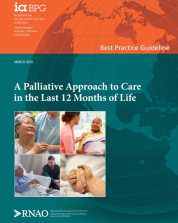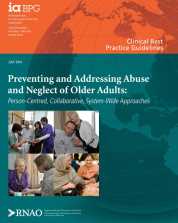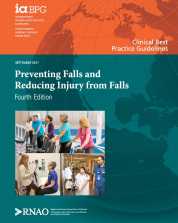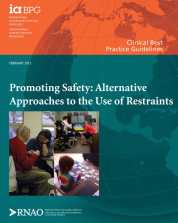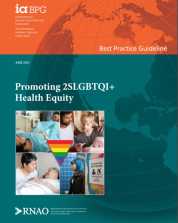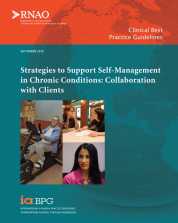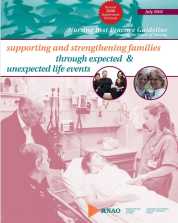This best practice guideline (BPG) provides evidence-based recommendations to nurses and the interprofessional health team who support adults experiencing the last 12 months of a progressive life-limiting illness, and their families and caregivers.
The purposes of this best practice guideline (BPG) are to expand the awareness of abuse and neglect of older adults and to provide evidence-based recommendations for preventing and addressing abuse and neglect in all health-care settings across the continuum of care in Canada.
This best practice guideline (BPG) focuses on the prevention of falls and fall injuries in all adults at risk for falls – including those living in the community – who are receiving care from nurses or other health-care providers.
This best practice guideline (BPG) focuses on bladder and bowel management in adults (aged 18 years and older).
The purpose of this best practice guideline (BPG) is to provide evidence-based recommendations for registered nurses (RNs) and registered practical nurses (RPNs) related to the care of individuals who are at risk for behaviours that may result in harm to self/others and lead to the possible use of restraints (physical, chemical, environmental). Unless otherwise indicated in the guideline, the discussion focus is on physical restraint.
The purpose of this best practice guideline (BPG) is to provide nurses and other members of the interprofessional team with evidence-based recommendations on foundational, inclusive care practices for 2SLGBTQI+ people.
The purpose of this best practice guideline (BPG) is to provide nurses and the circle of care with evidence-based recommendations on culturally safe and meaningful ways to support smoking reduction and cessation with Indigenous Peoples of reproductive age, their support networks and communities to improve health and wellness.
The purpose of this best practice guideline (BPG) is to provide evidence-based recommendations for registered nurses and registered practical nurses in self-management support. These recommendations identify strategies and interventions that enhance an individual’s ability to manage their chronic health condition.
The purpose of this best practice guideline (BPG) is to assist nurses in promoting family health through interventions and supports provided during expected as well as unexpected life events. Expected life events may include birth, school, adolescence, aging, and death, while unexpected life events may include trauma/accidents, chronic illness, developmental delay and disability.
